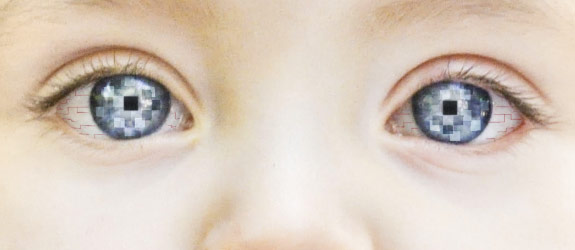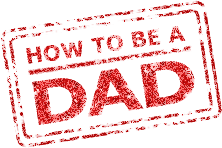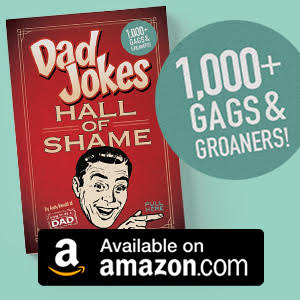The Blogged Generation

My family sits like a clump of wires at the back of a desk. Disentangling my familial politics and systems has often proved equally difficult. So when it came time to forge ahead to make my dad’s final plans after he died, things were inevitably complicated. I don’t know where my father’s ashes were spread. I don’t even know if that’s what he would’ve wanted.
The days following his death were blurry and intense. Dad had given verbal post-mortem directives to his partner, a woman who supported him for several years, up to and including his cancers treatments, his attempted surgery and his body’s final hours. My mother, brother and I arrived a few hours prior to his passing, but I was the only one in the room when he died.
But why am I blogging about these personal moments in public, sharing the inner workings of my life with you?
We now live in a world so desperately connected and on display that it’s hard to avoid storytelling of any kind. Every day, almost 150,000 hours of video are uploaded to YouTube, 55 million status updates publish to Facebook, and 200 million tweets go out to hundreds of millions of recipients. We are the narrators and consumers of story. We broadcast and editorialize our very existence. We are the fuel to a social engine that seems, for the moment, unstoppable.
I have strong concerns as a writer, a content creator and, most importantly, as a father to a four-year old boy. He is now recognized at the zoo and other public venues because of my online journaling. And now another child will enter my family. What does the future look like for a generation of children that will be the most recorded and documented in human history?
There are so many styles of shared broadcasting these days. Our friends showcase a genre of “performance art” in the form of updates to social networks like Twitter and Facebook all the time and mainly about their kids. We can finger through the digital filing cabinets of platforms like YouTube, Instagram and Flickr for media evidence of those stories. The Internet seems to be a mile wide and an inch deep intellectually, but these stories remain immortal. Whether you’re a blogger or just a chronic over-sharer of baby photos, you are crafting a story that people will find even if they become digital archaeology.
Surely we should start investigating these implications for the future of our online children, and who better to ask than the parents of some of these kids in question.
Heather Armstrong of Dooce.com plans to show her daughters her unique collection of digital diaries when they are older. Specifically, Armstrong told me about her eldest daughter, now a nine-year-old and already very Internet-aware from situations where strangers knew their names, “I’m very, very careful now about what I write and what I do. (My daughter) is very conscious. I’ve been very clear in my head that my website is not something I want her to read right now. I’m writing it thinking that one day she will go through the experience of parenthood and have this to reflect on.”
But Armstrong seems cognizant of the greater picture. Knowing her daughter is heading toward a transition period where, as a young woman, she’ll have access to the Internet while not yet old enough go decipher all that her mother has published, blogging has changed for the matriarch and writer as her daughter has grown older, “I have slowly tapered off the amount I’ve written about her but I do think about what she is going think in 20 years when she sits down to read it. It makes me cautious but it doesn’t stop me. I don’t think what we’re doing is wrong. What I would give to hear stories about me from my mother’s point of view from the age of three through seven years old.”
In the case of Kristen Howerton, who writes RageAgainstTheMinivan.com, her four children are active participants in the social media experiment of her self-reflection, “So far my kids seem to revel in my blogging. They ask if I’m going to write a story about them when I take a picture. I think they see that we get some cool opportunities from (blogging) and want to join in on the storytelling. It is going to be weird when they get to the “˜Googling’ age. But they’re so much a part of my narrative, I don’t know how to separate them from mine.”
Though gifted storytellers and commentators on the subject of parenting, have we made plans for the day our children can consume the visual and literary show about their lives? Do we write with their future in mind? And how do we define public versus private content especially when our personal connections, as well as possible careers opportunities, derive more and more from these content-driven channels?
Much like the advent of spellcheck for those who couldn’t spell, has the internet taken over as our mind — a storage of memories for recollection? Serving as a cut-and-paste shortcut of a lifetime for employers and strangers of all kinds to see?
When he died, my father left me two cardboard boxes as inheritance. In these bankers boxes were the key to my past and my future, respectively. One box contained every journal my father had written. There were pages and pages of story ideas, tidbits from his day and musing about what assholes my brother and I could often be to each other. My favorite line was, “The boys are being insufferable today.” I don’t know if he intended for anyone else to see the inner monologues in his notebooks, but I can only assume their existence meant he wanted them found and read.
The second container, my future box, contained every rejection letter from every freelance writing gig he’d ever pitched. Letters from major publications like Outside magazine, National Geographic, and a host of print rags were dumped somewhat angrily into one pile, just for me. I hope it brings my dad some consolation, wherever he is, to know most of the publishers he failed to pitch were ultimately failures themselves as publications, swallowed up the zeitgeisty Internet black hole.
My father wanted me to learn from these corroborating stories and not necessarily from the words on the pages he gave me. He wanted me to know about things I could only understand after a southpoint in my life: his death. The narrative he created through these gifts of his was also an attempt at proving two points: 1. Journaling is at the heart of examining life. 2. Tally your losses to prove, one day, that you survived in spite of them all. It was his own status update before Facebook was even widely available to the public.
Well, that or editors are a bunch of idiots. Present company excluded, of course.
While I remain unsure of how my blogging or digital persona will affect my son’s trajectory, I definitely don’t want my writing to crush my son’s future life. I refuse to be a cancer to his creativity and power of choice. Hopefully, my journals will serve as a preamble to a better story than I could ever tell. The story of Finnegan Capen.





